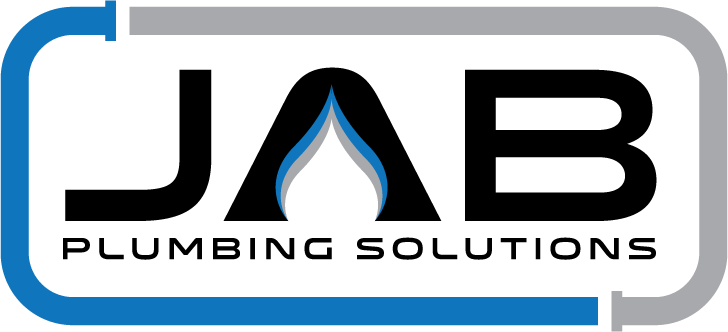Preventing blocked drains caused by grease
Running a busy restaurant is hard enough without the added stress of a blocked drain. Restaurants rely heavily on their plumbing systems to provide food and beverages and clean facilities for guests. If the kitchen sink gets blocked or there is a clog in the guest toilets it can interrupt workflow and bring business to a standstill. Implementing strict measures to prevent blocked drains from occurring should therefore be a top priority for restaurant owners and staff. Below are some methods for avoiding the most common blocked drain issues faced by Sydney restaurants.
1. Managing grease
Fats, oil and grease (FOG) are a major cause of blocked drains in restaurants. As oil cools down it hardens and congeals, sticking to the interior lining of pipes. This grease build up can be likened to blocked arteries - it accumulates over time until the pipe is completely clogged.
A New York Times article reported that around 62 percent of sewer backups in New York were caused by a buildup of FOG in 2014. That percentage is comparable to the grease scourge faced by sewer systems elsewhere, but the challenge in New York is unique because of the sheer size of the system and the approximately 24,000 food establishments in the city that rely on grease, the article stated.
Every time a meal is cooked, there is always some residual grease leftover. FOG is, therefore, an inevitable byproduct of a restaurant’s kitchen. The amount of grease varies depending on the type of food cooked in the restaurant. A restaurant serving deep fried food, for example, will produce a greater amount of FOG than an establishment serving salads.
Reducing the amount of FOG that enters the drainage system is imperative to avoiding blocked drains. This can be done in a number of ways. First, make efforts to reduce the amount of fat used when cooking and also try to reuse oil where possible. Greasy pots and plates can be wiped with a paper towel before they get rinsed and placed in the dishwater. Large amounts of oil, such as deep fryer oil should be disposed of in a metal bin or drum and collected by a grease collection company.
Restaurants are also required by law to have a functional grease trap installed. Grease traps are designed to do to precisely what their name implies - trap excess fats and oils that are being washed down the drain lines from the sink, dishwasher and pot sinks. In the grease trap tank, the FOG floats to the top, where they build up until they can be removed, while the grease-free wastewater continues through the interceptor and into the sewer system.
It’s important to have a grease-trap installed correctly as the location of grease traps can impact their functionality. If they are too close to the sinks, the residual hot water from the dishwasher can wash the grease right through the trap. On the other hand, if the trap is too far away, you may risk the fats congealing and blocking the drain before it can be removed by the trap.
Regular cleaning and maintenance of grease traps equally as important to preventing clogs and back-flow. For manual grease tanks, your kitchen staff can empty the grease trap by hand or you may even hire a company such as, Able Liquid Waste, to scrape out the FOG.
2. Install drain grates and drain covers
Another cause of blocked drains in Sydney restaurants is food scraps and coffee grounds. Food debris that enters the sewer line may get snagged on other things in the drain, or combine with congealed grease causing a clog. Certain foods - including pastry, rice, polenta and pasta - can even swell and expand in water.
There are two simple ways to avoid a blocked drain caused by food scraps. Training your employees to carefully scrape food off plates and pots into the bin before placing them in the sink is a great first step. Installing drain grates in sinks will also catch food and debris and prevent it from going into the pipes, keeping the plumbing system free from clogs. Drain grates in sinks are a cheap and practical solution to Sydney blocked drains.
3. Encourage good bathroom etiquette
Kitchen drains aren’t the only drains in restaurants that are vulnerable to clogs. Another major plumbing issue experienced by Sydney restaurants is blocked toilets. Restaurant toilets get a lot of use and unfortunately not all guests follow good etiquette. Many people don’t realise that tampons aren’t flushable. Tampons, female hygiene products, wet-wipes and paper towels don’t break down in water and can cause severe blockages in the sewerage system.
Ensure all restrooms have signage asking patrons not to flush sanitary items. Always provide clean bins in the bathrooms so that the guests have a convenient place to dispose of paper towels and sanitary items.
4. Routine inspection and drain cleaning
Due to the high number of blocked drains experienced by Sydney restaurants, it’s good practice to have your restaurant facilities serviced regularly. Removing minor blockages before they become a major issues will save restaurant owners a lot of money in the longterm.
JAB Plumbing Solutions is a team of local Sydney plumbers that specialise in sewer and drain cleaning. We work with a number of Sydney restaurants, providing routine checks with our CCTV pipe inspection cameras and can clean the sewer system using our high-pressured water jetters. For more information about our services, call 1800 225 552.







